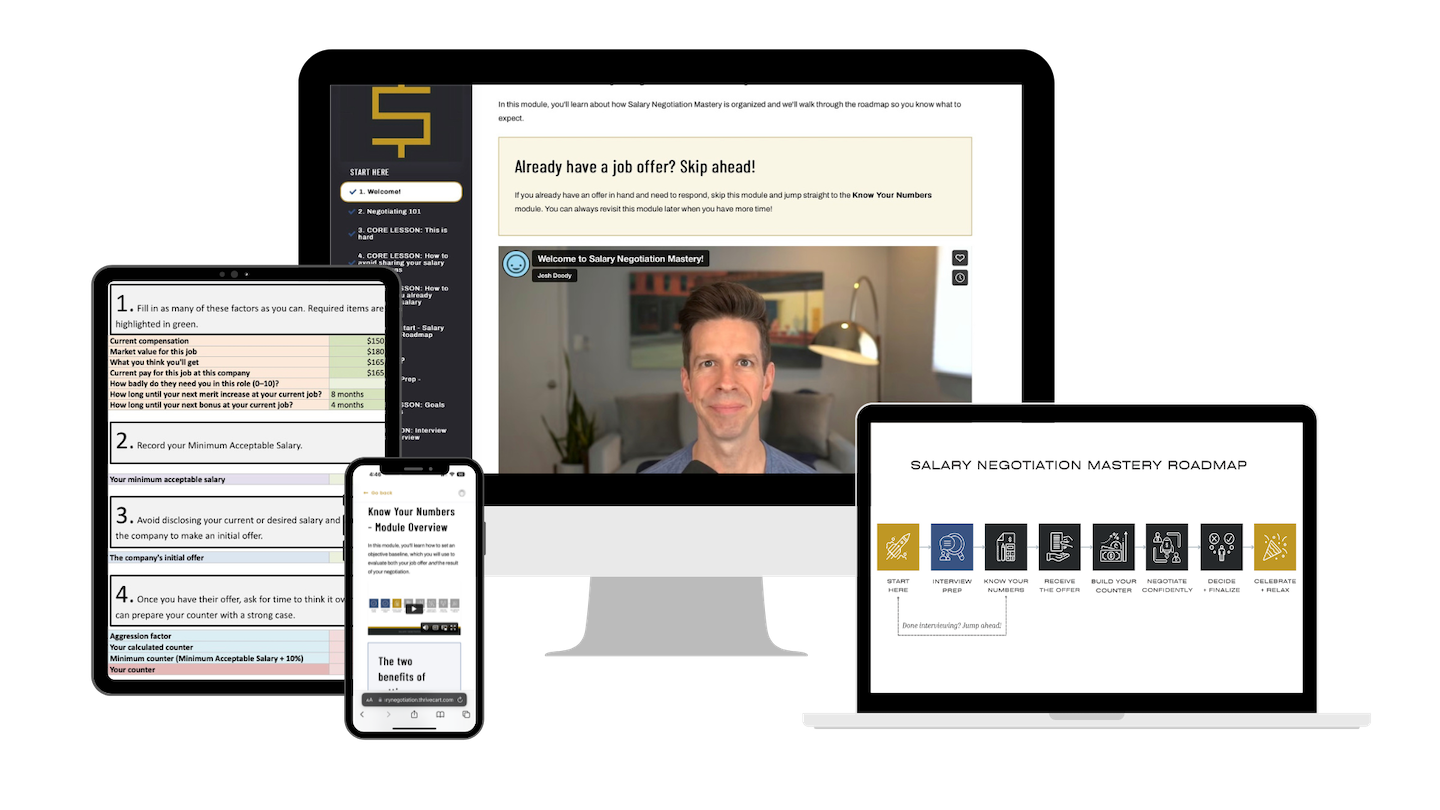Interview prep
5 things you should know before you apply for a job
How to find the right opportunities and make the most of them
by Josh Doody
The key to finding great opportunities and doing well in your job interviews is preparation. When you’re prepared, you’ll perform better, stand out from other candidates, and set yourself up for the best job offer possible.
Here are five things to think about before you apply for a job.
1. Your best opportunities will come from your network
There’s no harm in sending out your resume to see which companies respond, and you may find a great opportunity this way. But your best opportunities will come through your network. Those opportunities are often not posted to job boards and career pages, and the best way to get them is to be outstanding in your field.
This means two things are very important:
- Cultivate relationships with people in your industry so you can build your network.
- Make sure you don’t burn bridges by doing things like quitting a job without giving notice because you’re frustrated at work.
2. Prepare for each interview—do your homework
Many candidates just show up for their interviews and start answering questions. You can do better. Before you interview with a company prepare for your interviews by visiting their website and spending some time on Google just learning basic things about their company. Here are some examples:
- What’s their mission statement?
- Who are their customers?
- What are their goals right now (growth, building a new product, increase margins)?
- What types of jobs are they trying to fill?
This small bit of preparation will help you stand out in your interviews.
3. You have something valuable to offer—emphasize that
Yes, you’re applying for a job. But that job opening exists because the company needs something that you have. Your task is to demonstrate to them that you have what they’re looking for, and that what you offer is valuable to their business.
Approaching interviews from this perspective will help you make a better case that you’ll be a valuable candidate for the job, which means you’ll do better in your interviews and get more job offers.
4. You’re telling a story about how the company will be better if you’re a part of it
This is your interview strategy, which follows directly from the previous point. You should be constantly demonstrating how your skillset and experience are valuable to the company and will make it better. This is a shift for the typical interviewer whose goal is often something like “I don’t want to screw this up.” or “I hope they like me.”
This is a nice strategy, but how about some tactics?
Here’s a framework you can use to implement this strategy when you answer almost any interview question:
- Identify goals and pain points the company has. You should have a pretty good idea from the light research you did to prepare for your interview.
- Determine which skills and experience you have that helps them achieve those goals or address that pain point. You could contribute directly (you’re experience in Sales in their vertical and they’re trying to generate revenue) or indirectly (you’re an experience software developer who can help improve the product so Sales has an easier job).
- Combine the goals or pain points with the specific skillset or experience into attribute-for-need statements. “My experience selling into this vertical will help you grow revenue and build your business.” or “I’ll focus on writing quality software that users love so that your Sales team can close more deals and get more leads.”
5. Negotiate starting salary
You’re going to work very hard to build your skillset, find good opportunities and excel in your interviews. Make sure you follow through and negotiate starting salary when you get a job offer so you can maximize your starting salary and take full advantage of your new opportunity.
Most people will hold relatively few jobs over their lifetime. And changing jobs usually provides the best opportunity to significantly increase your salary. So take advantage of it and negotiate—don’t just accept their initial offer.
This salary negotiation script generator and counteroffer calculator is a good place to start for an overview of my strategy.
Learn more Ready to start applying? Here's how to prepare for your interviews

